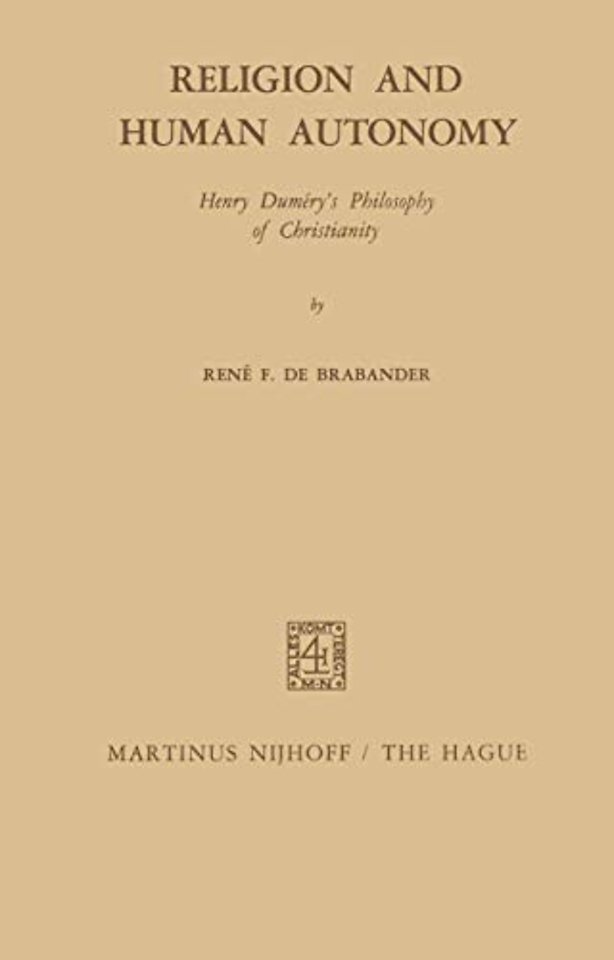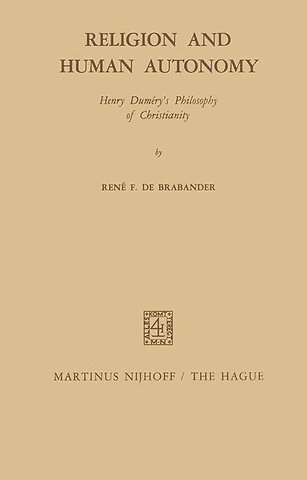I Freedom and Religion.- Section I: Posing the problem.- Section II: Duméry’s appraisal of Sartre’s position on God and freedom.- Section III: Duméry’s critique of Sartre’s position on God and freedom.- II Search for a Method to be Used in the Philosophical Study of Religion.- Section I: Method of explication and method of confrontation.- a) Stating the problem.- b) The method of explication.- c) The method of confrontation.- Section II: Blondel’s method of immanence and the philosophical study of religion.- a) Introducing the framework of the Blondelian thought.- b) The problem of the supernatural and the method of immanence.- c) How the principle of immanence can provide a method for the philosophical study of religion which escapes the pitfalls of immanentism and dualism.- Section III: Husserl’s method of comprehension and Duméry’s method of discrimination.- a) The method of Husserl and the service it renders to the phenomenology of religion.- b) Objections against Husserlés phenomenological method.- c) Duméryés method of discrimination: reflective and critical analysis.- III Duméry’s Religious Philosophy. The Spirit as Constitutive Exigency of the Absolute.- Section I: Transition from method to doctrine.- Section II: The irreducible relation of the spirit with God.- a) The God of living religion.- b) Plotinian translation and completion of Husserl’s reductions.- c) Nature of the relation between the Absolute One and the spirit.- Section III: The spirit as creator of the world of determinations. The theory of the Act-Law.- a) The spirit as correlation of freedom and order.- b) Description of the relation between the act-law and the psyche: freedom and determinism, eternity and time.- c) Empirical consciousness and its universe: inverted expressions and projections of the system of spirits.- IV Duméry’s Philosophy of Religion: Critique of the Categories and Schemes which Express the Spirit’s Constitutive Exigency of the Transordinal One.- Section I: The scheme of transcendence and the category of the Absolute.- a) Scope of the reflective critique in general and of the critique of the attributes in particular.- b) Henological redemption of the scheme of transcendence and the category of the absolute.- c) Henology and negative theology.- Section II: Interpretation of the category of grace and the scheme of the supernatural.- a) Is there a philosophical problem of grace and how can philosophy deal with it?.- b) Discriminative critique of the different schemes of the category of grace.- c) Philosophical critique of the categories of grace and the supernatural.- Section III: Category of faith, factual and doctrinal schemes.- a) Descriptive phenomenology of the Judaeo-Christian religion.- b) The Jesus-fact assumed by the hierogenic consciousness of the early Christian community.- c) The four means of expression of hierogenic consciousness.- d) Projective mentality and truth of Christianity.- Epilogue: Human Autonomy and Finitude.

